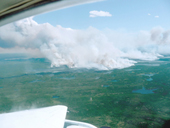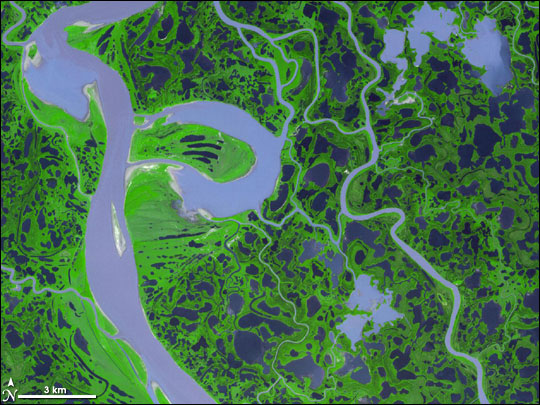Earth Systems Research Center (ESRC) brings together ecologists, environmental chemists, Earth system modelers, and remote sensing scientists to study natural and human-induced changes in the Earth's water, carbon, and nitrogen metabolism.
Our Research
ESRC researchers use technologies in remote sensing, field and laboratory investigations, and computer modeling to study
• Global & regional freshwater resources
• Forest decline
• Ocean chemistry
• Glacier and polar ice sheet dynamics
• Carbon cycle at local, regional, and global scales
• Nitrogen cycling in terrestrial & aquatic ecosystems
• Atmosphere/biosphere exchange & trace gas flux
• Land use/land cover change, local to global scales
Our Academic Program
Our students are explorers. They can be found on the ice sheets of Greenland, in the Amazonian rainforests, and off the waters of New England, gathering scientific data on the workings of the Earth systems.
ESRC graduate education programs encourage interdisciplinary approaches to understanding environmental change.
The interdisciplinary research at the Institute for the Study of Earth, Oceans, and Space (EOS) offers opportunities for students to work alongside distinguished faculty in high-level research projects.



